- Home
- Tim LaHaye
Assassins: Assignment: Jerusalem Target: Antichrist Page 12
Assassins: Assignment: Jerusalem Target: Antichrist Read online
Page 12
“You have the right to live healthy, peaceful, and free. While I shall remain always a pacifist, I pledge to rid the world of this cult, beginning with the Jerusalem Twosome, who even now express no remorse about the widespread loss of life that has resulted from this attack.”
“You know,” Tsion said, sitting on the arm of the couch next to Chloe, “I am going to have to ask forgiveness for the glee I will feel when this man’s due time arrives.”
Carpathia pushed a button that showed Eli and Moishe holding forth at the Wailing Wall. They spoke in unison in a loud, haunting, echoing tone that carried without amplification far across the Temple Mount.
The words flashed across the screen. “Woe to the enemies of the most high God!” they said. “Woe to the cowards who shake their fist at their creator and are now forced to flee his wrath! We beseech you, snakes and vipers, to see even this plague as more than judgment! Yea, it is yet another attempt to reach you by a loving God who has run out of patience. There is no more time to woo you. You must hearken to his call, see that it is he who loves you. Turn to the God of your fathers while there is still time. For the day will come when time shall be no more!”
Carpathia came back into view with a condescending smile. “The day will come, my friends, when these two shall no longer disseminate their venom. They shall no longer turn water to blood, hold back rain from the clouds, send plagues to the Holy Land and the rest of the globe. I upheld my end of the bargain negotiated with them months ago, allowing certain dissidents to go unpunished. Here is my reward. Here is how we are repaid for our largesse.
“But the gift train stops here, loyal citizens. Your patience and steadfastness shall be recompensed. The day will yet come when we live as one world, one faith, one family of man. We shall live in a utopia of peace and harmony with no more war, no more bloodshed, no more death. In the meantime, please accept my deepest personal condolences over the loss of your loved ones. They shall not have died in vain. Continue to trust in the ideals of the Global Community, in the tenets of peace, and in the genius of an all-inclusive universal faith that welcomes the devout of any religion, even that of those who now oppose us.
“Just four months from now we shall celebrate in the very city where the preachers now taunt and warn us. We shall applaud their demise and revel in a future without plague and disease and suffering and death. Keep the faith, and look forward to that day. And until I address you again, thank you for your loyal support of the Global Community.”
The ultimate in medical technology was housed in two fully equipped ambulances that waited at the end of the primary runway in Khartoum. With the wet cloth still pressed against his left ear, Mac helped Abdullah open the door and lower the stairs as Leon and Karl staggered out, each with a failing aide in tow and each leaving a dying comrade aboard. Emergency medical technicians, gloved and gas-masked, hurried aboard, lugging metal boxes. Mac and Abdullah stood on the tarmac, refusing assistance until everyone else was attended to. The other four were treated in the ambulances, and soon the EMTs deplaned, then reboarded with gurneys. They emerged with both victims covered head to toe with sheets.
Fortunato stood sans suit coat outside an ambulance, tie loose, shirt sweat drenched. He wiped his brow, breathing heavily. “Precautionary?” he asked the EMTs as the victims rolled by.
They shook their heads.
“They aren’t . . .”
“Yes, they are,” one said. “Asphyxiated.”
Leon turned to Mac. “Get that wound taken care of, and have the plane thoroughly checked out. We can’t have another episode like that.”
Mac had three puncture wounds in his scalp, a deep laceration in his neck that required twenty stitches, and a nearly severed ear requiring forty more. “That’s going to smart something awful when the painkiller wears off,” he was told.
Two young people were dead, four other passengers deathly ill, and the world in chaos. Mac decided he could live with pain.
Rayford sat in the living room at the safe house in the wee hours as the others drifted back to their beds. He had limped into the house behind Leah, wet, cold, and aching all over. After having run into her at full speed, he could only imagine her pain. The immediate concern and attention of the others—even during the broadcast of Carpathia’s address—wounded him in its sweetness. Truly they were brothers and sisters in Christ, and there would be no surviving without them.
After they heard Rayford and Leah’s story and thanked God for the provision of the money, Tsion had shared a little of what he would transmit the next day. He seemed especially intrigued that believers could see the horses and horsemen while the victims could not. Even on camera, people were shown recoiling from snakebites, enveloped by clouds of smoke, and consumed, seemingly by spontaneous fire from thin air. “I had envisioned the horsemen as one vast army riding together,” Tsion said, “and perhaps at some point they will. But so far it appears they are assigned to various locations. How long this will continue, I do not know. Frankly, I am disappointed to not have seen them yet myself.”
Eventually Rayford and Chloe were the only ones left in the living room. “Going to bed, Dad?” she said at last.
“In a while. Just need to unwind. Unique day, you know. Never saw anything like that before. Don’t care to again.”
She moved around behind him and massaged his neck and shoulders. “You need rest,” she told him.
“I know.” He patted her hand. “I’ll be all right. You get your sleep so you can take care of that baby.”
As he sat in the darkness, Rayford ran through the events of the last several days. His question had been how much more they could take. This was only the beginning, and he couldn’t imagine enduring the next few years. He would lose more comrades, and at an accelerating pace.
His rage had not abated, but he had been able to somehow tuck it on a high deck behind a pup tent in his brain. Still longing for the privilege of being used in Carpathia’s demise, he had to admit he was grateful for what he had seen that night. He was way past where he could deny God’s forceful presence during this period. But to stand face-to-face with the horsemen of Revelation, to walk right through them to safety . . .
Had the horsemen been blinded to the believers as well? Surely, like the demonic locusts, they were agents of Satan who would rather kill believers than enemies of God.
Rayford still wasn’t sure what he thought about Leah. She was difficult to identify with. Something about her seemed younger and more naive than her years. They had been through a horrifying ordeal together, and yet his image of her as too strident and opinionated had not faded. He had been moved by her salvation account and did not doubt her sincerity. Was it sexist to be repulsed by her straightforwardness? Would he pass the same off as mere spunk in a man? He hoped not.
Rayford inventoried his injuries. He needed another long, hot shower. A toe throbbed and might be broken. His left knee ached as it had before surgery in college. His left elbow was tender. A finger was sprained. He felt a bump on the back of his head. Too bad he was pushing forty-six. Running into someone and tumbling to the ground was part of a typical day for a nine-year-old.
And he was stricken with thoughts of his son. Raymie had been twelve when he disappeared in the Rapture. Though Rayford had largely succeeded in refraining from pining over him, Raymie was always at the edge of his consciousness. He suffered the guilt of time lost, wasted, not carved out for his son. The memories of the times they had spent together brought a lump to his throat.
Rayford slid off the couch and onto his knees, thanking God for Irene and Raymie, grateful they were spared this torturous existence. He also thanked God for Amanda, whom he had enjoyed for such a short time, but who was no less a gift. Chloe, Kenny, Buck, Tsion, Mac, David, Bruce, Ken . . . they all came to mind and brought emotion, regret, gratefulness, worry, hope.
Rayford prayed he would be the kind of leader to the Tribulation Force that God wanted him to be. And he still held out hope that thi
s somehow included his being in the proximity of Nicolae Carpathia three and a half years from the beginning of the Tribulation, just four months hence. And Carpathia had just announced where he would be.
Mac was grateful Abdullah supervised the fumigation and inspection of the aircraft. His head pulsated. He still had to fly, but he would rely on Abdullah more than ever.
Everyone, himself included, seemed jumpy, keeping their eyes open for danger. Mac found himself starting at any movement in his peripheral vision, fully expecting to see the giant horses and riders. Abdullah appeared just as edgy.
Despite his trauma, Fortunato appeared eager to get going again. Karl was particularly agitated, alternately crying and bustling about to make certain everything was just so. As Mac and Abdullah walked through their preflight routine, Fortunato was ushered into the gleaming Khartoum terminal. He emerged in fresh clothes, apparently having also showered, and looked 100 percent better. Concern still clouded his face. He stopped by the cockpit to be sure Mac and the plane were flightworthy. “At the first unpleasant odor, I want this plane on the ground,” he said.
At one in the afternoon in New Babylon, David Hassid finally got a break from his emergency duty. He had helped transport bodies to the morgue and ferry the ill to hospital rooms. He had not seen what had wrought the catastrophe, but he put two and two together when reports poured in of death from fire, smoke, and sulfur. Nowhere near a tenth of the GC employee population had been affected yet, but still hundreds had died. He knew his stateside comrades, at least Rayford and a new Trib Force member, had seen the horsemen. He felt better knowing he was not the only believer who had not seen them.
David was frantic about Annie. He had not seen her since the first alarm sounded, sending all personnel into preassigned emergency roles. He couldn’t reach her by phone or computer, and no one had seen her. Her duty in an emergency was to punch a series of highly encrypted numbers into a remote-control box that secured the hangar. Once that was accomplished, she was to account for all staff in David’s department. The hangar had been secured, but David had to check on staff himself.
It was grisly work. Of 140 people under his supervision, ten were dead, two were treated for smoke inhalation, and one was missing: Annie. Three of the dead had appeared to spontaneously combust. During the awful task David came to a conclusion. If Annie had somehow survived, he would make public their feelings for each other. He would even take the initiative to get her transferred, per policy, so it wouldn’t appear a reprimand of either of them when it came through channels.
Once his report was filed David ran past dozens of employees who sat in clusters, crying, talking, commiserating. They would have been ripe for praying with, for sharing God with. But he was not yet prepared to sacrifice his potential benefit to the cause.
At his level of security clearance, David was able to obtain a key to Annie’s quarters. She was not there. Despairing, he strode to the expansive hangar and entered the codes necessary to disengage the security locks. The huge side doors slid open to reveal the cavernous innards, which looked even bigger with the flagship aircraft away in service. The choppers and few fixed-wing craft didn’t begin to fill the building.
David opened Annie’s, Mac’s, and Abdullah’s offices and flipped on the lights. Nothing. But that’s when he heard it, the muffled rhythmic pounding. It came from the utility room at the far corner of the structure. He soon recognized the thumps as Morse code. Someone was banging out an SOS. David broke into a sprint.
The utility room was double insulated for noise and steel reinforced for safety. This had been Annie’s first time securing the hangar. Maybe she didn’t know the utility room self-locked from the inside and was the last place a person wanted to be while remotely locking down the whole building. Once that room was locked, communicating from inside was impossible. Phone and even the remote control unit would not transmit past the heavy steel. To get out, someone inside had to first be discovered.
David reached the door. “Who goes there?” he hollered.
“David!” came Annie’s frantic reply. “Get me out of here!”
“Thank God,” he said, unlocking the door. She leapt into his arms, enveloping him so tight he had to fight to breathe.
“Learn something about the utility room today?” he said.
“I thought I’d be in here forever!” she said. “I checked the utilities and started punching in the codes as I was heading out, not realizing the doors would lock from inside. I’ve still got to account for your staff.”
“Done.”
“Good. Thanks for telling me about the utility room.”
“Sorry. I’m just relieved I found you.”
“You’re relieved? I was scared to death. I imagined you could go days without thinking to look in here.”
David could tell Annie was truly angry with him. “It was actually Mac’s place to tell you about—”
She looked askance at him. “Don’t tell me you’re a finger-pointer. This seems like a major thing you could have told me.”
He had no defense.
“So what was the big emergency?” she said. “Another false alarm?”
“You really don’t know?”
“How would I, David?” she said. “I saw people running and heard a few coughing when I saw the alert. I came straight here.”
“Come with me,” he said.
They sat in her office, where he told her the whole story.
“I could have helped,” she said. “I look like a coward, thanks to you.”
“I just about died worrying about you,” David said. “I thought I knew what you meant to me.”
“You thought?”
“I was wrong. What can I say? I need you. I love you. I want everybody to know.”
She shook her head and looked away. “You loved me enough to let me lock myself in.”
Now David was angry. “Did you read the procedure manual like you were supposed to? It’s clear.”
“I suppose I’ll get reprimanded.”
“Probably. It’s going to be hard to hide that I did your work.”
“It was the least you could do,” she said.
David fought to attribute her sudden unattractiveness to claustrophobia and frustration. “I love you even when you’re ornery,” he said.
“That’s big of you.”
He shrugged and turned his palms up in surrender. “I’d better get back. Until you and I declare ourselves, we can’t be seen together. For one thing, I have to account for your whereabouts.”
“That’s only fair.”
He shook his head and rose.
“Someone should have told me,” she said.
He didn’t look at her. “I got that point.”
“I’m just saying,” she said, “that I’m the one who could get booted out of my job and reassigned. You know what that’ll mean.”
He turned back. “Ten minutes ago I would have loved that. It would have meant we could declare ourselves and I’d get more time with you.”
David could tell he had wounded her. “And now?” she said.
“Like I said, I love you even when you’re—”
“You know the price, David. I want what you want, but what’s best for the Trib Force?”
“I can’t be much good to the Force, frustrated without you.”
“Who has the access to GC brass that you do?”
“I know. So, are we in love again or what?”
She came to him, and they held each other. “I’m sorry,” she said.
“Me too.”
CHAPTER 10
Mac had not been to Johannesburg since before the great wrath of the Lamb earthquake. From the air it resembled New Babylon. The rebuilt airport served as a major hub of international travel. Regional Potentate Rehoboth’s palace housed his several wives, children, and grandchildren, along with servants and aides.
The left side of Mac’s head felt twice as big as the right, and pain stabbed each wound with every
beat of his heart. Even applying his headphones was a chore, trying to keep the gauze from pressing tighter against his stitches.
Upon landing, Mac and Abdullah were to open the door and lower the steps. They could then leave the plane, retire to their quarters, or remain in the cockpit, as long as they did not interfere with the meeting. Karl and his assistant would remain on board to serve food. Mac told Leon that he and Abdullah would remain also, probably in their quarters. Of course, they stayed in the cockpit, where Mac listened in on Fortunato and his remaining aide.
“Clancy,” Leon said, “I would like you to phone Ngumo at the VIP guesthouse. You can see it there at the end of the airport. Here’s the number. He will not likely answer himself, but put the speakerphone on so I can hear, just in case.”
Mac wished he could take notes, but he couldn’t risk being found with them. He would just have to remember as much as he could—no easy task with the pain. He heard Clancy slowly enter the number. A mature woman answered. “You have reached Mwangati Ngumo’s secretary. May I help you?”
“Yes, ma’am, thank you. I am Clancy Tiber, personal assistant to Global Community Supreme Commander Leon Fortunato. I am pleased to tell you that the supreme commander is prepared to receive Mr. Ngumo and two aides aboard Global Community One.”
“Thank you, Mr. Tiber. You may expect them in five minutes. Mr. Ngumo is very much looking forward to his meeting with Potentate Carpathia.”

 Glorious Appearing: The End of Days
Glorious Appearing: The End of Days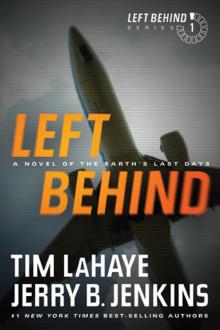 Left Behind: A Novel of the Earth's Last Days
Left Behind: A Novel of the Earth's Last Days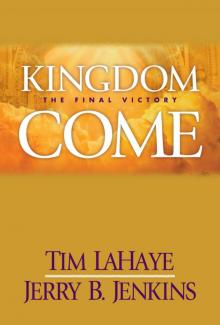 Kingdom Come: The Final Victory
Kingdom Come: The Final Victory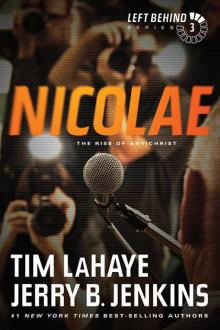 Nicolae: The Rise of Antichrist
Nicolae: The Rise of Antichrist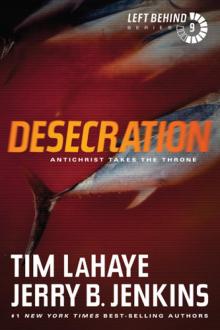 Desecration: Antichrist Takes the Throne
Desecration: Antichrist Takes the Throne Mark's Story: The Gospel According to Peter
Mark's Story: The Gospel According to Peter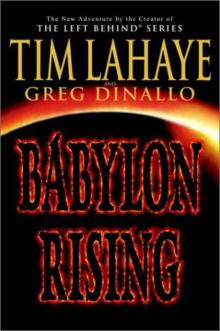 Babylon Rising
Babylon Rising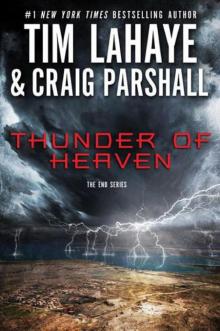 Thunder of Heaven: A Joshua Jordan Novel
Thunder of Heaven: A Joshua Jordan Novel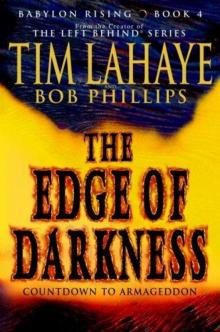 The Edge of Darkness
The Edge of Darkness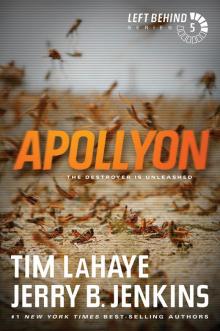 Apollyon: The Destroyer Is Unleashed
Apollyon: The Destroyer Is Unleashed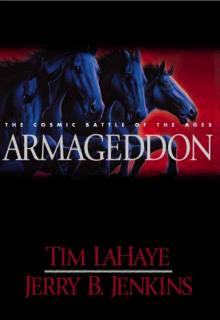 Armageddon: The Cosmic Battle of the Ages
Armageddon: The Cosmic Battle of the Ages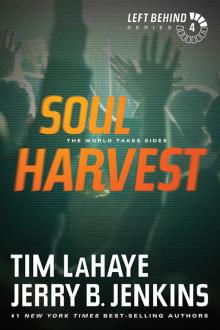 Soul Harvest: The World Takes Sides
Soul Harvest: The World Takes Sides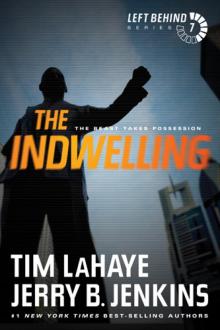 The Indwelling: The Beast Takes Possession
The Indwelling: The Beast Takes Possession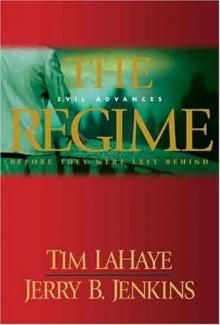 The Regime: Evil Advances
The Regime: Evil Advances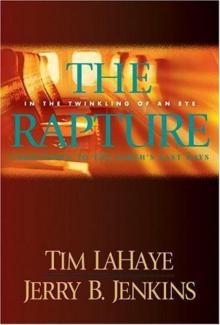 The Rapture: In the Twinkling of an Eye / Countdown to the Earth's Last Days
The Rapture: In the Twinkling of an Eye / Countdown to the Earth's Last Days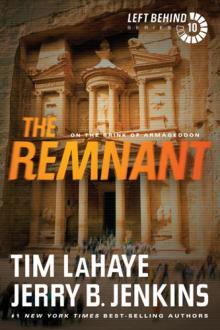 The Remnant: On the Brink of Armageddon
The Remnant: On the Brink of Armageddon John's Story: The Last Eyewitness
John's Story: The Last Eyewitness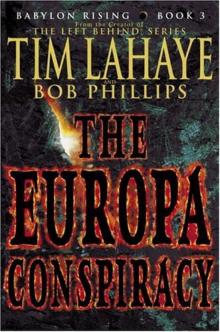 The Europa Conspiracy
The Europa Conspiracy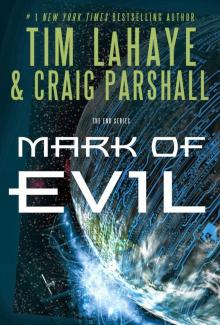 Mark of Evil
Mark of Evil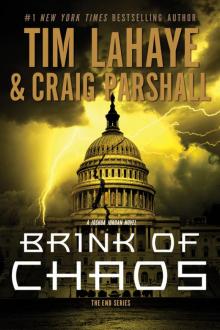 Brink of Chaos
Brink of Chaos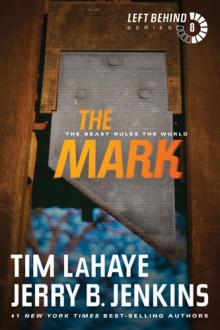 The Mark: The Beast Rules the World
The Mark: The Beast Rules the World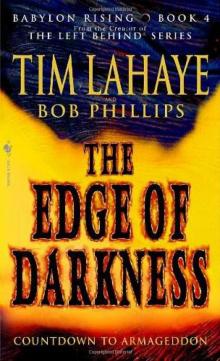 04 The Edge of Darkness
04 The Edge of Darkness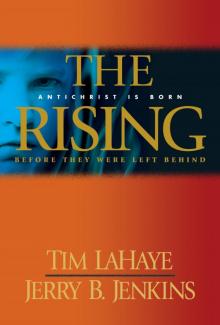 The Rising: Antichrist is Born / Before They Were Left Behind
The Rising: Antichrist is Born / Before They Were Left Behind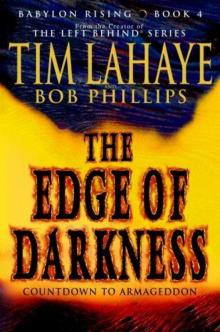 Babylon Rising: The Edge of Darkness
Babylon Rising: The Edge of Darkness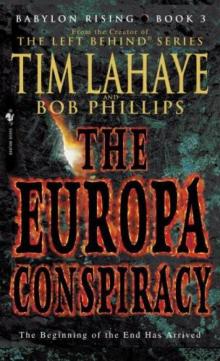 03 The Europa Conspiracy
03 The Europa Conspiracy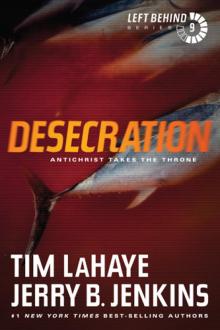 Desecration
Desecration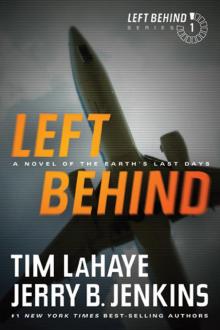 Left Behind
Left Behind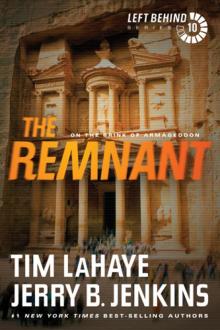 The Remnant
The Remnant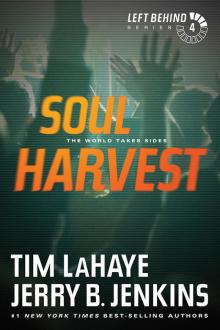 Soul Harvest
Soul Harvest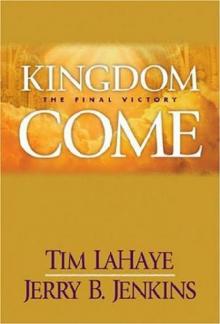 Left Behind Book 13: Kingdom Come The Final Victory
Left Behind Book 13: Kingdom Come The Final Victory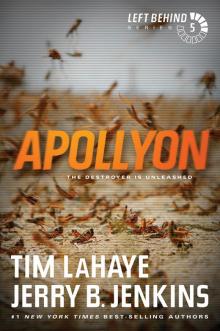 Apollyon
Apollyon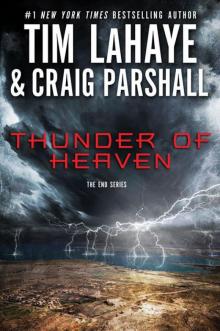 02 Thunder of Heaven: A Joshua Jordan Novel
02 Thunder of Heaven: A Joshua Jordan Novel Glorious Appearing
Glorious Appearing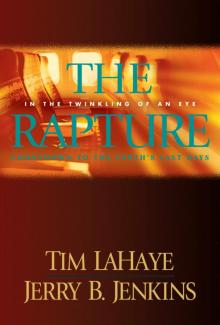 The Rapture: Evil Advances / Before They Were Left Behind
The Rapture: Evil Advances / Before They Were Left Behind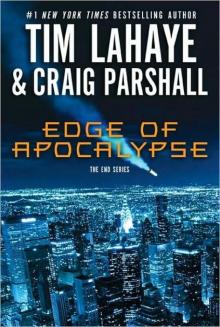 Edge of Apocalypse
Edge of Apocalypse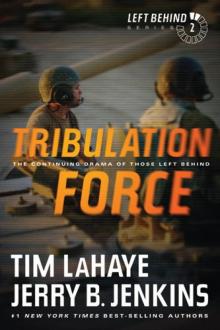 Tribulation Force
Tribulation Force The Left Behind Collection: All 12 Books
The Left Behind Collection: All 12 Books Black Friday
Black Friday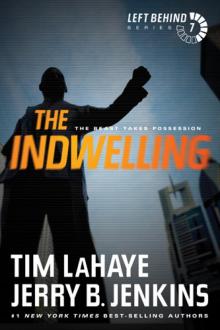 The Indwelling
The Indwelling The Left Behind Collection
The Left Behind Collection